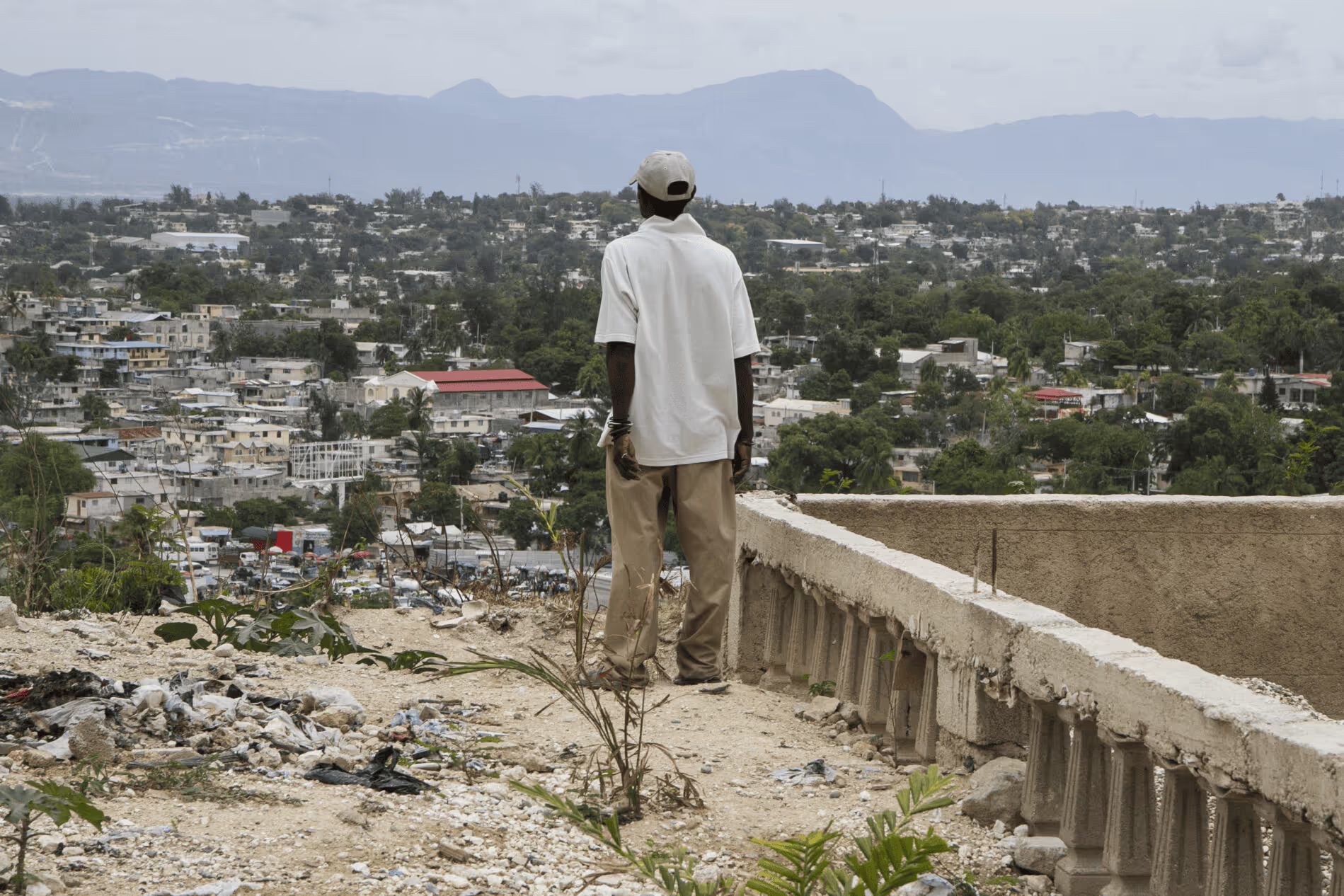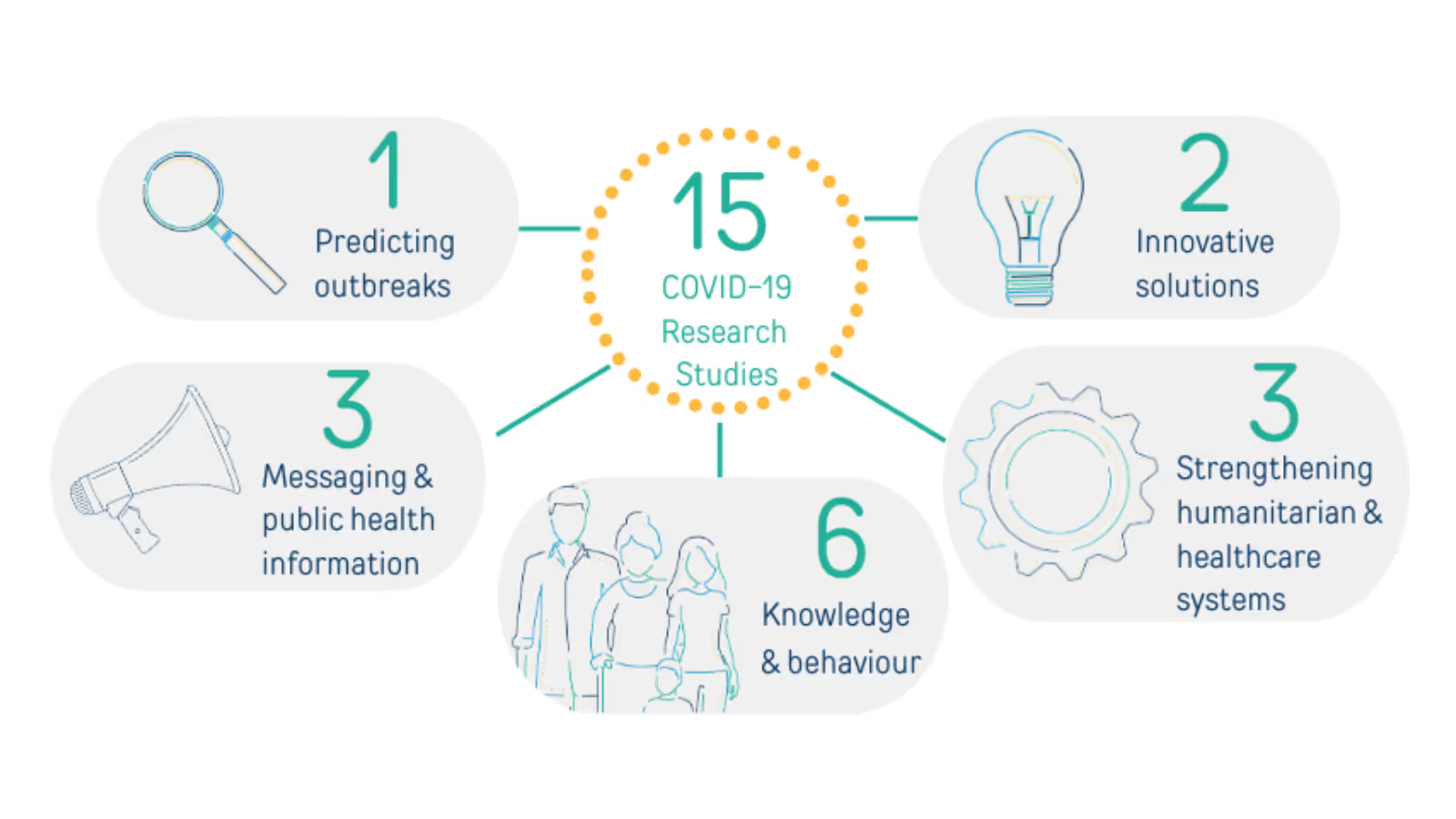Our history
We have been part of the humanitarian community for over 15 years, working to improve outcomes for people affected by crises. Throughout our journey, we’ve achieved significant milestones that highlight our commitment to driving positive change.

Dive deeper into our achievements
Explore our annual reports for a detailed look at our progress and impact in humanitarian research and innovation each year. These reports provide in-depth insights into the work we've accomplished and the challenges we've addressed.
January 2009
Elrha is born
Elrha is born, and sets out to bridge the gap between academics and humanitarian practitioners.

March 2011
We launch our Humanitarian Innovation Fund
We see the potential of innovating to improve humanitarian response and launch our Humanitarian Innovation Fund (HIF) – the first of its kind.

June 2013
We establish the Research for Health in Humanitarian Crises (R2HC)
We launch our second programme, Research for Health in Humanitarian Crises (R2HC), to generate more and better evidence of what works in public health interventions.

October 2013
We begin our work in WASH
We establish our first thematic-focused area of work, looking at how innovation can address complex problems in humanitarian WASH. (In 2019, we published our WASH Innovation Catalogue, showcasing over 30 potential solutions, with s second edition published in 2020. Read them here.)

September 2014
Responding to the Ebola outbreak in West Africa
In response to the Ebola outbreak in West Africa, we ran a special rapid response funding call through our R2HC programme. Findings of the research contributed to the public health response, directly supporting efforts to bring the outbreak under control and inform future responses.

September 2015
Our work tackling Gender-Based Violence
We develop a second thematic area of work, focusing on GBV and exploring how innovation can play a vital role in addressing this global problem.
March 2016
Scaling humanitarian innovations
We establish our bespoke ‘Journey to Scale’ initiative in response to a sector-wide demand for greater understanding of tackling the barriers to scale. (Since 2018 we have published a series of reports, insights and tools around scaling innovations, and the successes, barriers, and failures. Read about them here

February 2017
Leading a global effort to map research and innovation investments and capacities
Through our Global Prioritisation Exercise, we identify shared priorities in the system, so that both research and innovation are better connected to global efforts to improve humanitarian response. See our Mapping Report .

May 2018
We become independent!
Originally a hosted entity of Save the Children UK, We achieved a significant milestone, becoming an independent charity.

June 2018
We publish the Humanitarian Innovation Guide
We consolidated our innovation knowledge and learning and transformed it into a practical resource; the Humanitarian Innovation Guide. Whether you’re an innovator, a humanitarian, or both, our Guide helps people and organisations define humanitarian problems and successfully develop innovative solutions.
January 2019
We celebrate 10 years
Happy birthday Elrha! In 2019 we celebrated our tenth year… Watch our 10 Years of Elrha video, and take a look at our stories which capture our first decade…
March 2020
15 research studies funded to support COVID-19 response in real time
We funded 15 humanitarian health research studies as part of our COVID-19 responsive funding call for proposals. This urgent funding call sought robust public health research proposals that could contribute to the effectiveness of the humanitarian response to COVID-19 and increase the evidence base for future responses to similar infectious disease outbreaks.

October 2020
We began hosting the UK Humanitarian Innovation Hub
With funding from the UK’s Foreign, Commonwealth and Development Office we began hosting the UK Humanitarian Innovation Hub, sharing resources to help them broker and facilitate high-impact accelerated innovation collaborations.
December 2021
New WASH report centres needs of people affected by Crisis
Gaps in WASH in Humanitarian Response: 2021 Update’ incorporates the views and experiences of more than 1,700 people affected by crisis and nearly 700 in-country WASH practitioners, and is the most comprehensive and inclusive research project of its kind in the humanitarian sector.

June 2023
We launch our new long-term Strategy
Our new Strategy was developed to capture our renewed vision, values, and long-term commitments, and defines our work until 2040, seeing us radically focus our vision and raise our ambition for the role of research and innovation in the humanitarian system.

January 2023
Celebrating 10 Years of R2HC!
The anniversary was an opportunity for us to reflect on how our research programme has developed, as well as its contribution to improving humanitarian public health over the last decade.
March 2024
We publish ‘Global Insights: The Humanitarian Research and Innovation Landscape’
The culmination of our Global Prioritisation Exercise, we launch our landmark publication. Drawing insights from 16 thematic, regional and country-level consultations, it is the most comprehensive overview of the humanitarian research and innovation (HRI) ecosystem to date, encompassing findings, conclusions, and actionable recommendations to drive policy and practice changes.
